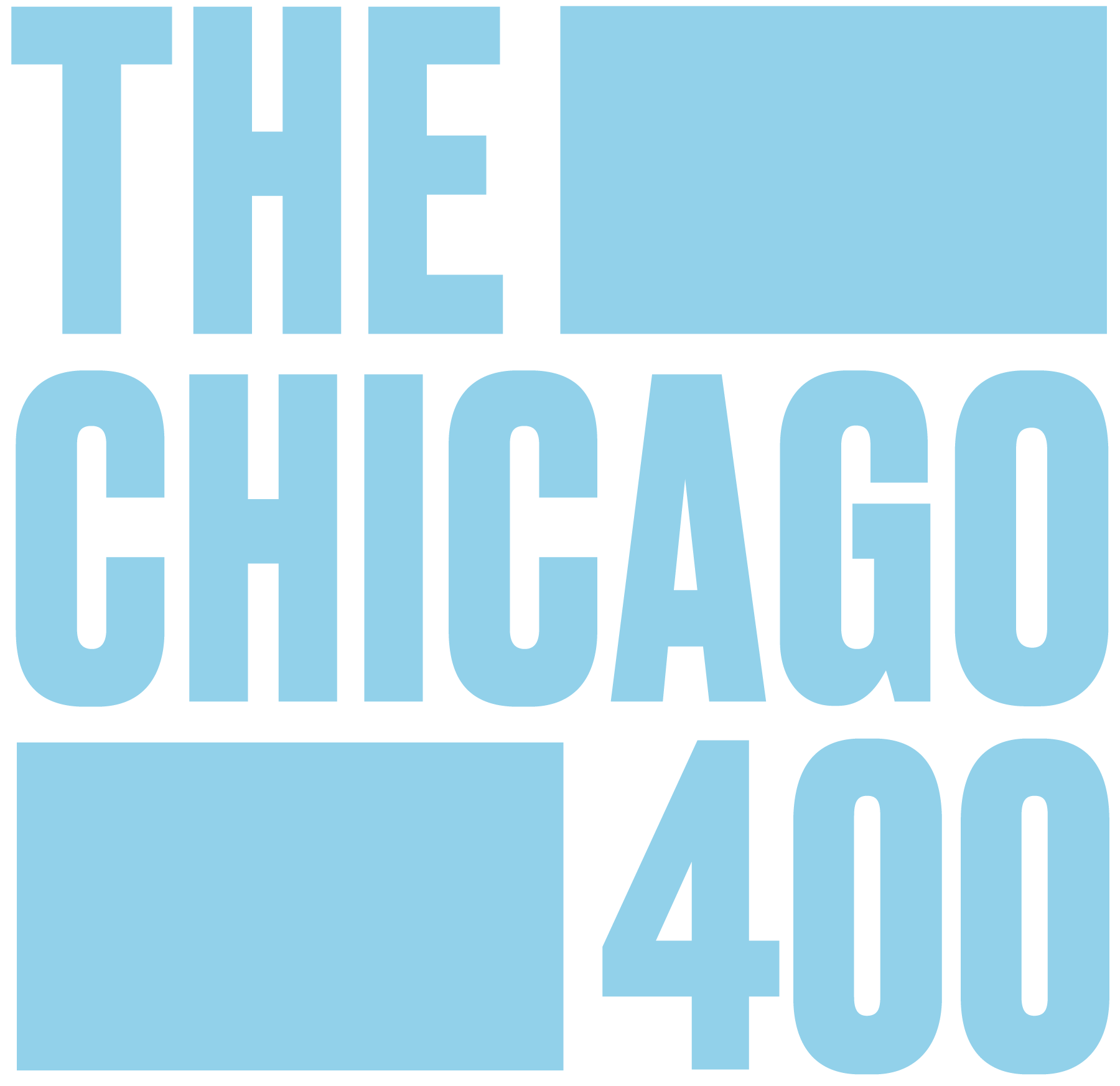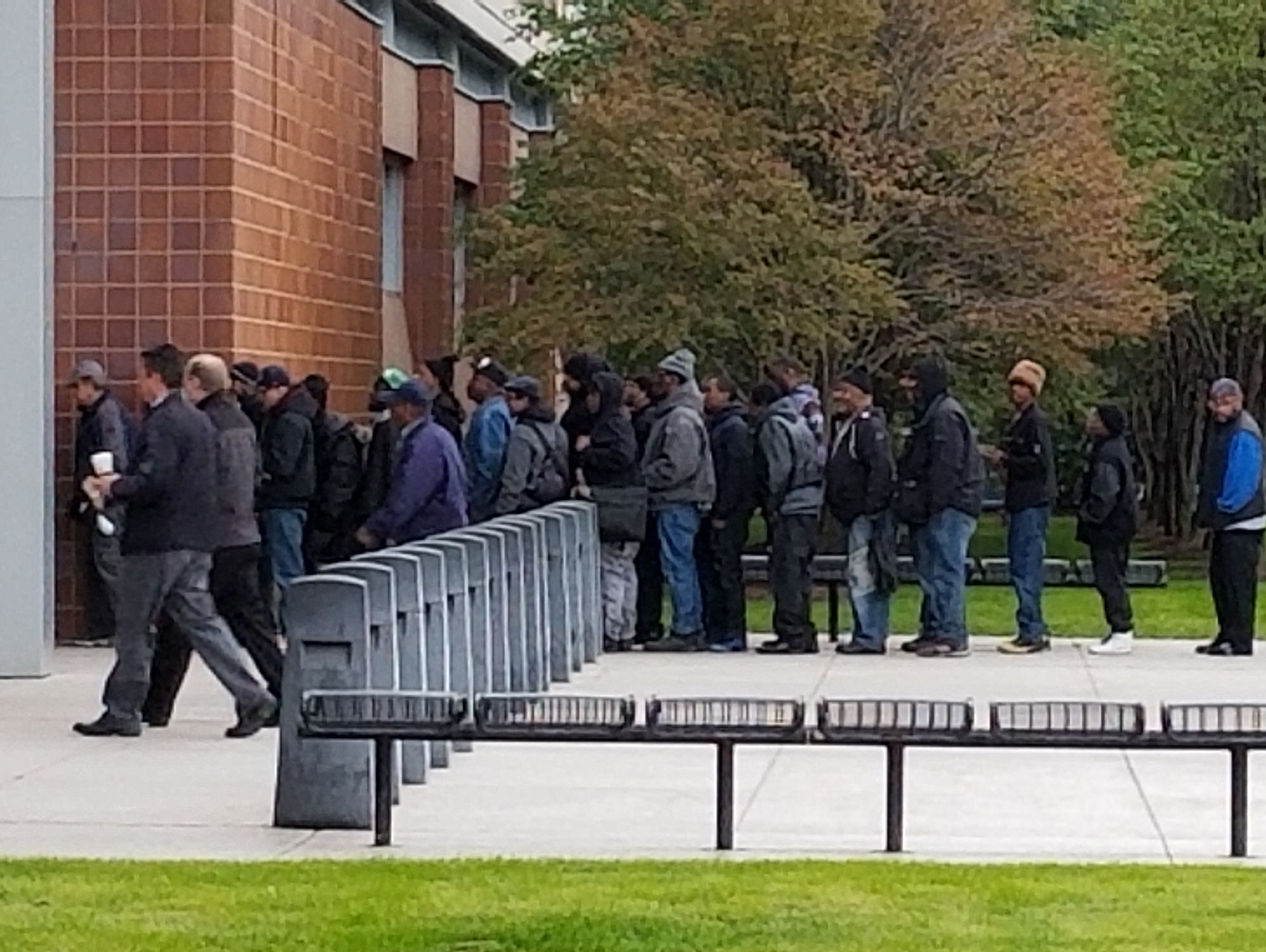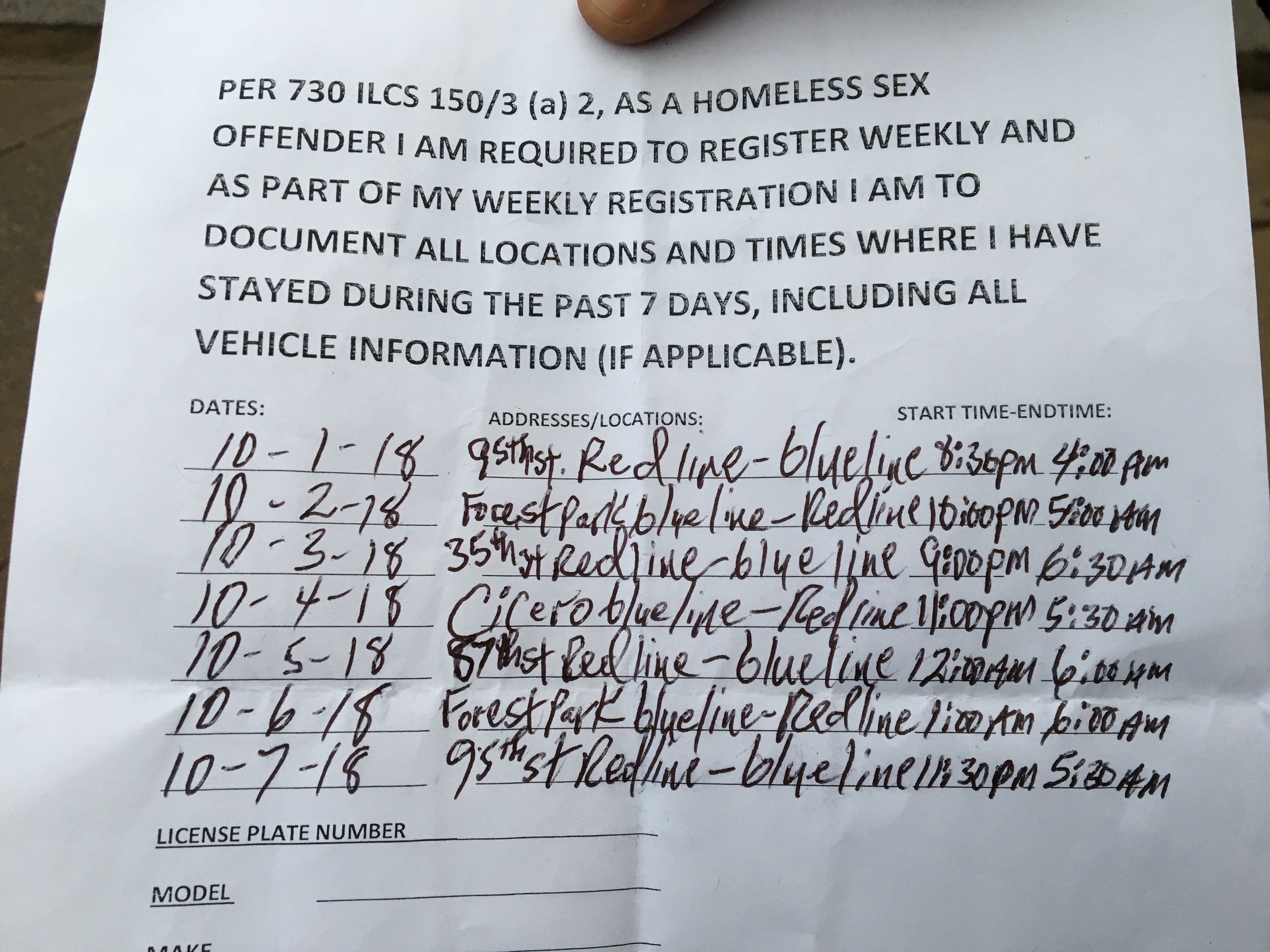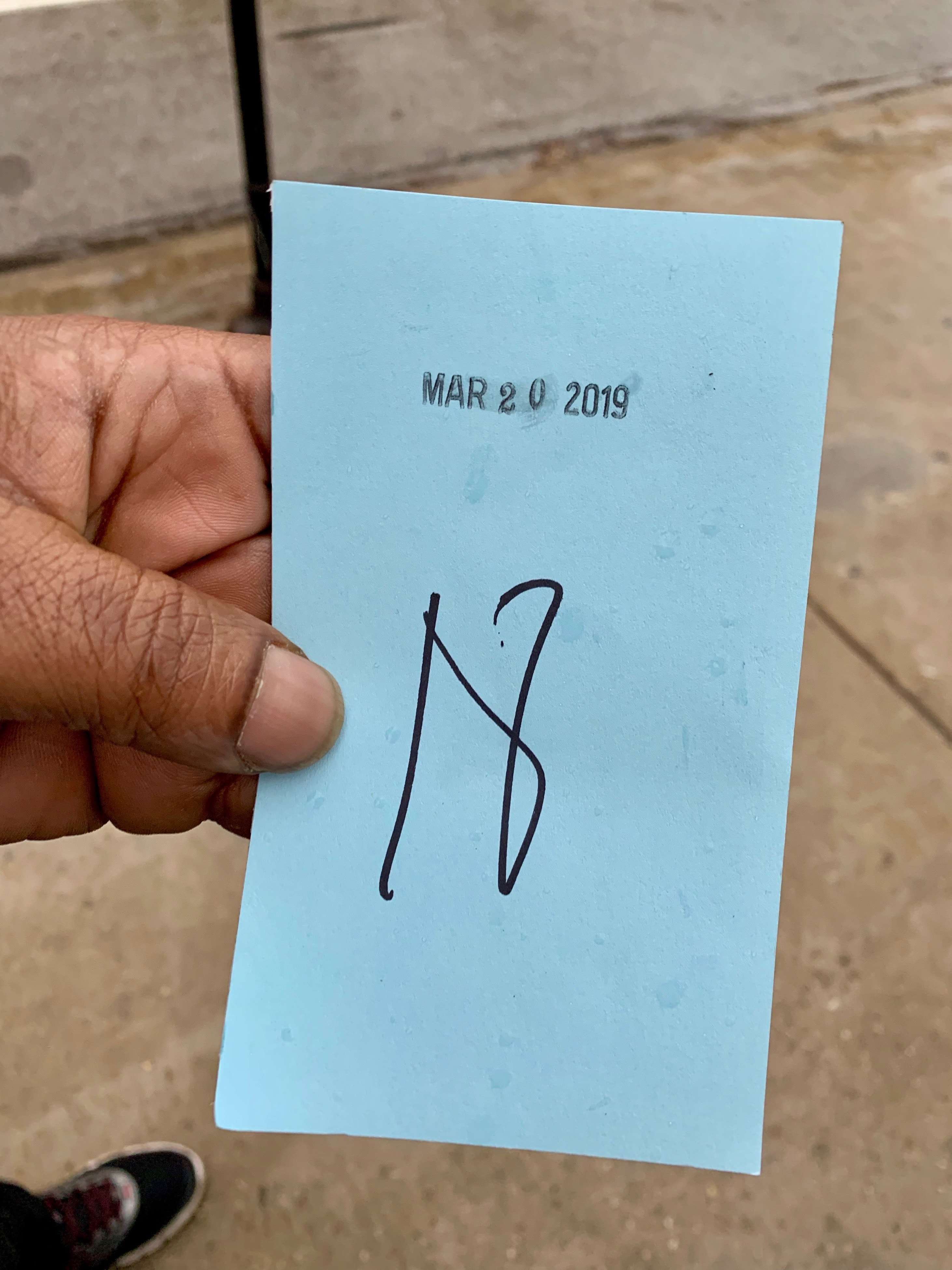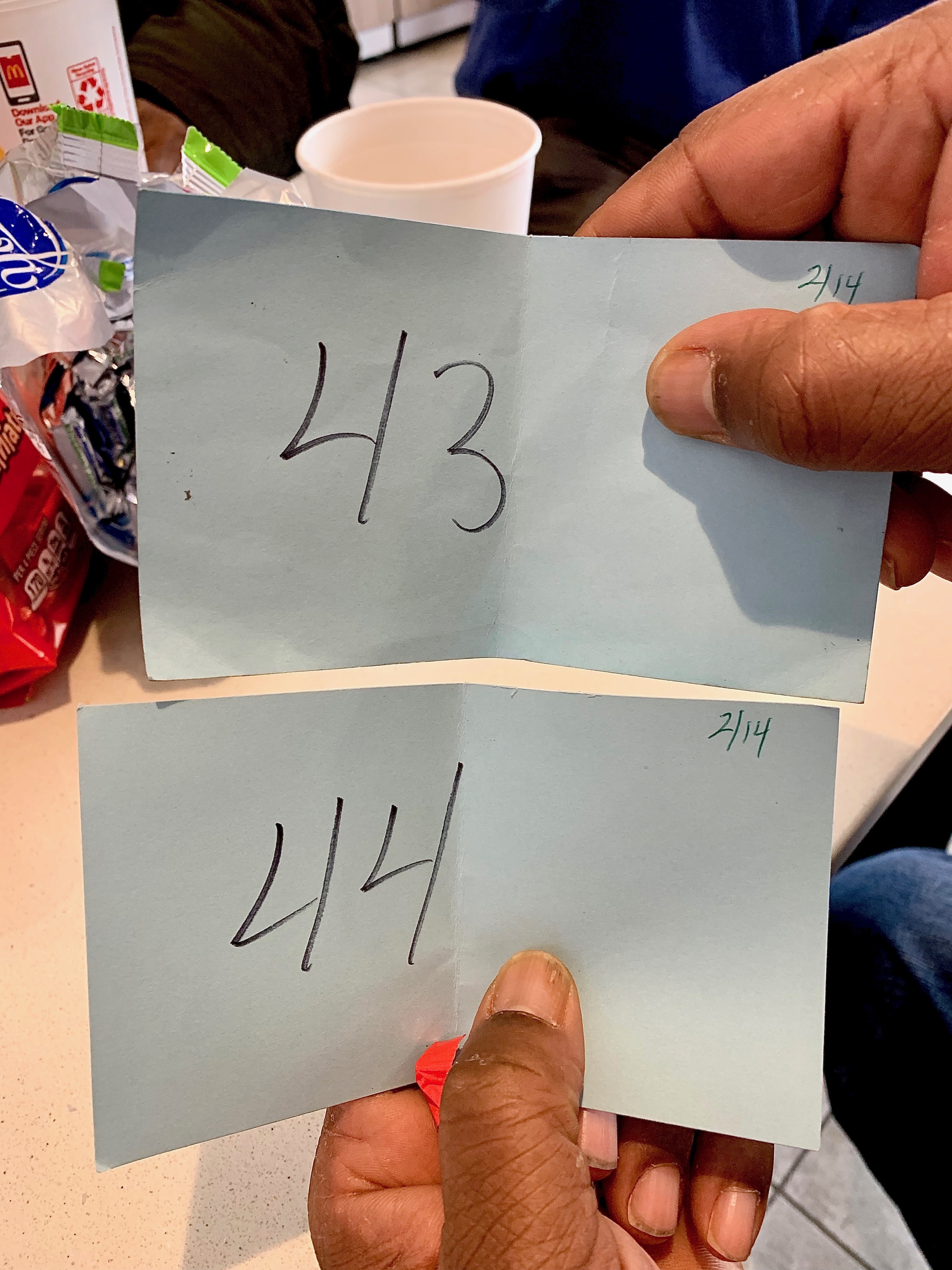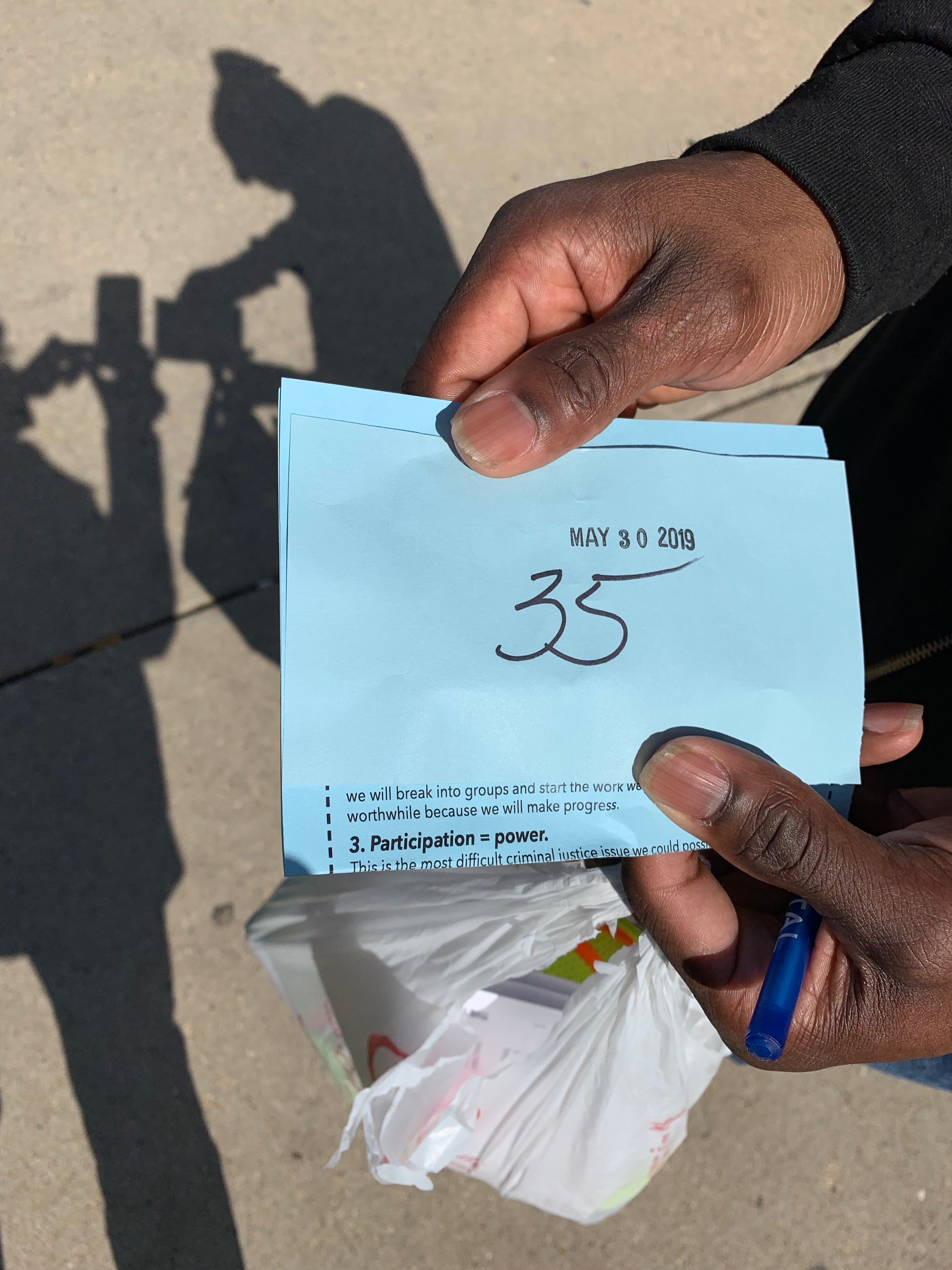Chicago 400 Campaign
Campaign to repeal public conviction registries and housing banishment laws—initiated by people experiencing homelessness because of these laws
- Chicago 400 Campaign
-
Maps
-
McDonald's Legal Talk Desk and Fellowship Programming
-
Organizing Model and Campaign Structure
-
Chicago 400 Conferences
-
Drawing, Sculpture, Sound, Performance, and Radical Social Practice
Critical action! Please stand up and support SB 2254/HB3625
Follow the campaign on Twitter @chicago400.
Sign up here for updates or volunteering.
Donate here to support the Chicago 400 Alliance. This is an all-volunteer grassroots campaign in partnership with some of the poorest people in the state of Illinois.
Fill out this form if you are requesting technical assistance.
Read the 2020 report on Illinois residency restrictions.
Download a pdf of the footnoted version.
Chicago 400: Weekly Police Diaries Video
Check out our Linktree!
Recent press
Chicago Reader: "An impossible situation: Beginning January 1, the City of Chicago will ban unhoused people on the sex offense registry from seeking shelter on public buses and trains." - by Shawn Mulcahy
Chicago Reader :"Nowhere to Go: People with sex offense convictions struggle to find housing in Illinois" - by Devyn-Marshall Brown
Bolts: "How Illinois Housing Banishment Laws Push People into Homelessness and Prison: Organizers with past sex offense confivitons are championing a bill in the state legislature that could end the cycle and roll back residency restrictions" - by Shawn Mulcahy
WBEZ: "Lightfoot Challengers Pledge Action on Criminal Registries" - by Shannon Heffernan
WBEZ: "People with sex and gun convictions are required to register with police. CPD can’t keep up" - by Shannon Heffernan
WGLT: "Conviction Registry Rules Cause Racial Disparities" - by Edith Brady-Lunny
WBEZ: "Pandemic Brings New Urgency To The Problem Of Illinois Holding Prisoners Long After They’ve Served Their Time" - by Jessica Pupovac
The Southern: "Hundreds of Southern Illinoisans are required to register. But are we any safer?" - by Molly Parker
Daily Northwestern: "The Chicago 400 Highlight Need to Reform Registry and Banishment Laws"
North By Northwestern: "Chicago 400 Alliance shares the difficulty of finding housing while on a conviction registry"
The Chicago 400 Alliance
This unique multi-disciplinary campaign was initiated by the Chicago 400, people subject to extreme and damaging policies targeting those with past convictions. The Chicago 400 are Chicagoans listed on a public conviction registry who are experiencing homelessness—and who therefore must register weekly . We are years or decades past the end of punishment, but have ongoing lifelong housing banishment and re-reporting requirements to police. If the Chicago 400 miss a week, we face a 10-year extension or a new felony charge. Rather than supporting people with convictions in moving forward with their lives, this maze of convoluted registry and banishment laws is driving re-incarceration.
The Chicago 400 Alliance is the all-volunteer network of people and organizations stepping up to support the Chicago 400 with logistical and legal support, direct aid, and most importantly, to support the campaign to abolish public conviction registries and banishment laws. The campaign is also working on cultural projects to advance narrative change, including a mapping project, an experience simulation, a resource guide, and an audio project. We had a winter interim solo show at The Drawing Center in New York in January 2020.
About the Chicago 400
—Nearly 80% are poor Black men, age 30-70, from the west and south sides.
—Although many Chicago 400 members maintain 1-3 jobs, we often miss work or lose employment opportunities in order to re-register weekly.
—About 56% of the Chicago 400 have been sent to prison at least once for an administrative paperwork violation. Most have also had 10-year extensions of registration time for administrative violations.
—Nearly 1 in 5 people listed on the sex offense registry in Chicago is homeless, largely due to the state's life-long residency restrictions.
—The rates of people on registries are alarmingly high in general, and the racial disparities are striking. About 1 in 212 men in Illinois is listed on the sex offense registry. For African-American men, that number is 1 in 84.
—When you combine people on all registries in Illinois: about 1 in 142 men is on a registry, and about 1 in 42 Black men.
Anyone who lacks a legal residence must register weekly. Since so much of Chicago housing is blocked out as illegal, it is very hard to find a legal address. Registering weekly means spending hours in a "bull pen" at the police station. We are also subject to lifelong public space banishment laws, which prohibit us from being present in or within a block of many public spaces, and housing banishment laws, which prohibit us from living most places. And when we do live there, we can be forced to move at any time.
Together we are organizing to support each other in surviving these policies, and in changing the state laws, which are among the most restrictive in the country. In collaboration with victim advocates and other justice advocates, we are introducing legislation to end weekly registration and reduce housing banishment laws, and ask to transfer the tremendous police resources spend on registration and compliance checks over to investigating crime or something that will truly help people.
Registration process
Everyone in Chicago listed on any public conviction registry has to re-register in person at the Chicago Police Department. Because the police are so overloaded by the tens of thousands of re-registrations they conduct each year, this system is constantly in flux. It has changed 7 times since 2012.
Currently, the CPD have spread out people who are experiencing homelessness to register at 4 different stations. Those required to register annually or every 90 days all register at a single location at 9059 S. Cottage Grove. People experiencing homelessness also have to register at this location to conduct their annual registration and pay fees.
Blue cards
The Chicago 400 formed when all Chicagoans on registries were required to go to Chicago Police Headquarters, where they all waited in long lines for hours.
People who registered weekly were forced to pick a day of the week to register. They could not miss that day of the week or they would be arrested. Because people were working, had school, child care, elder care, and other responsibilities, they were desperate to be first in line so they could leave the police station.
When the registration unit opened at 8:00am, the police lined us up and handed out numbers. Some guys spent the night outside the station, or arrived at 3:00am or 4:00am, to try to get a low enough number to make it to our jobs after we register.
At 8:00am, people who were experiencing homeless were lined up separately and got a different set of numbers. The “blue numbers” were always called last, after every other person had registered. This left people waiting in a "bull pen" for hours. Sometimes a person with the #1 blue card would be still waiting at noon, when the police take a lunch break.
After the Chicago 400 started to organize, Chicago police improved the wait times. They also started to take some "blue numbers" along with everyone else. People still waited hours to get in line and wait for their number to be called, but this was the first improvement in years. But the Chicago 400 reiterates: improving the current system is not the goal. The goal is to challenge public conviction registries and housing banishment laws because they are senseless, damaging policies targeting people who have served their time.
The blue numbers—only given to the Chicago 400—have come to symbolize our treatment by the state. Our time, housing, employment, and the lives of our families are treated as if they don't matter. This has heightened our need for group solidarity and direct-action organizing. The Chicago 400 logos are based on the symbol of the blue card. The Chicago 400 has reclaimed these cards and their meaning.
